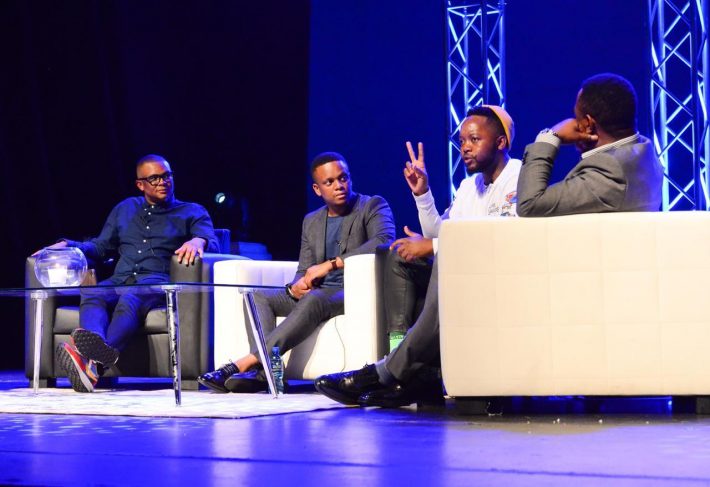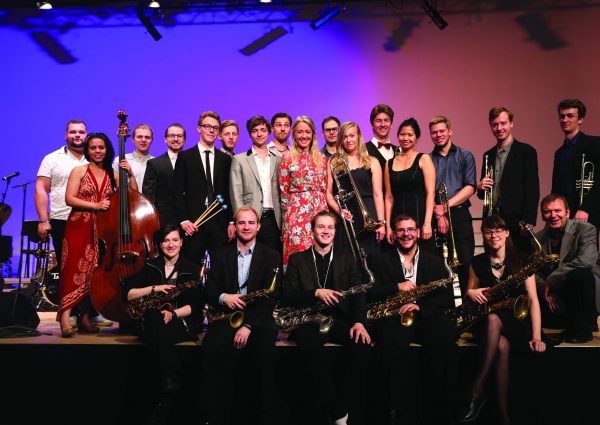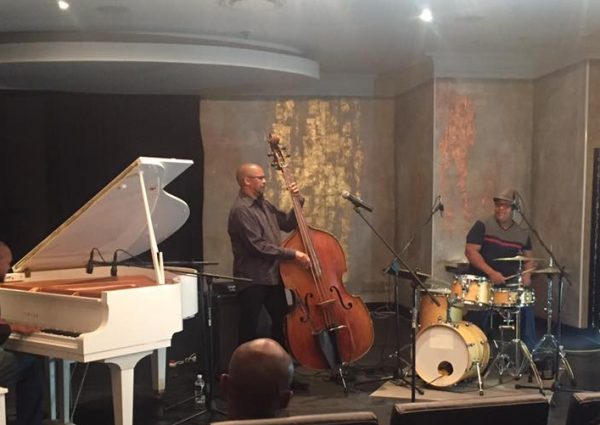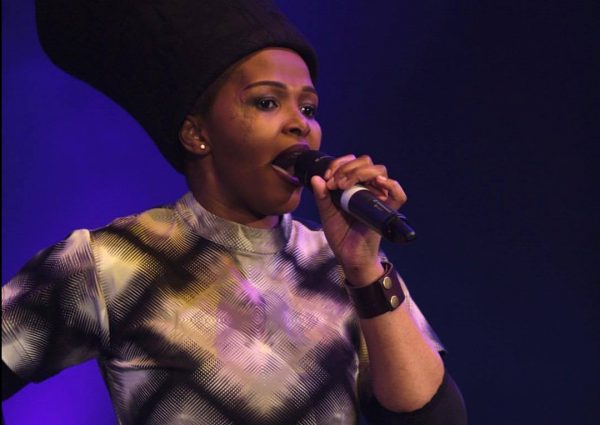While South Africans were recovering from wrestling each other for the cheapest TV on Black Friday, Bloemfontein artists gathered in their numbers for a priceless Black Friday deal in the form of a free television masterclass, writes Ace Moloi.
The Television Classroom – as it was called – was instructed by SA television heavyweights, Tebogo Malope, Kutlwano Ditsele and Legend Manqele. The curriculum featured industry issues such as casting, access, pitching, copyrights, regionalism and financial management. The conversation was organised by CTC College in conjunction with The BarLeader TV, and facilitated by Nkox Da Leader.
DESTINY night
From the long registration queue I could tell that this was a conversation everyone would not want to miss. The women were even dressed for it, as if they were here for a night of destiny. It must have been the presence of Legend Manqele, the trending man who resuscitated the two gendered publications, DESTINY and DESTINY MAN. I have heard a lot about him, like a true legend. What a Black Friday bargain to have planetshakers like him in town.
After wasting a good hour on registrations, we finally started with the business of the night. Though most of us were seated at the bottom half of the theatre, a couple of socially awkward people took up distant space on the upper half. Later on, during Q&A, their weird space politics would catch up with them as the mic took ages to reach them.
We should, perhaps, start from the beginning
To bless and break bread so that we may wine and dine in discourse, our panellists took us through the foundation phase of their television classrooms. Kutlwano Ditsele, who co-owns Seriti Films, remembered how television was a defining feature of his childhood. He painted a picture of a child who found soundtracks more exciting than candy wrappers. Kutlwano was schooled in film and television at the New York Film Academy through a scholarship. Back in South Africa, opportunity was not presented to him on a platter like John the Baptist’s head. He fought his way up.
When Kutlwano was done summarising his story, Legend took over to narrate how the oral storytelling traditions of his rural childhood in KZN influenced his career path. “I thought that this was an opportunity from an early age to retell these stories,” he said.
Reality TV shows have heralded a worldwide narrative revolution and here in South Africa there is no conversation about this storytelling uprising without the mentioning of Legend. The Durbanite dynamite has produced major shows like Being Bonang and Living The Dream With Somizi.
If Kutlwano and Legend styled themselves in an executive-creative hybrid, Tebogo came dressed like a creative misfit. He had a yellow beanie suspended on his ‘koppie’ and green socks strangling his pants, which the lighting on stage contrasted as black. This was a look rather ironical for someone whose language was ‘churchier’ than his dressed-to-preach friends.
In addition to having directed news-making shows like SABC 1’s Skeem Saam and Mzansi Magic’s Isibaya, Tebogo also belongs to a black minority that is fighting for representation in advertising. His view is that only unity and not rivalry among the few blacks in the industry can drive change. “If we look at each other as enemies, we miss the bigger picture. In commercial, there are a handful of us, but there is strength. And they can’t ignore us.”
The centre will always hold
Our TV industry is regionalist in nature. Johannesburg is the centre, we are the periphery, and the road that leads Bloemfontein to mainstream is not rosy (excuse the pun).
There is a plethora of factors to consider before deciding to shoot in any region, stated Kutlwano. For this reason, though originally from the North West Province, the acclaimed filmmaker has not yet done any work in his province—and it is something he is not proud of.
The message is brutally honest: this industry is not built on pathos, but logos. Kutlwano told us of how Isithembiso was originally Bokamoso, scripted to be captured in North West. However, his homecoming plan collapsed due to high costs. North West, like Free State, does not have the material and social infrastructure to attract filmmakers. Profitability always overrules sentimentality.
Order, chairperson…
An audience member rose to ask why today’s producers have bias against rural provinces when, in the past, productions such as Dikolong were shot in areas like QwaQwa? He went on to urge the panellists to “take a leap of faith” and invest in the Free State.
Legend conceded: “It is also our fault, also our responsibility to say, what about the Free State?” Tebogo challenged the ground forces to keep screaming until the industry can no longer ignore their creative voice.
Open up the industry
The floor was ablaze with questions and critique, sometimes suspicion. It seemed difficult to fathom how this dialogue would be of any help when the industry is known for recycling faces.
“There is nothing I do more than open up the industry,” declared Kutlwano, whose faith in casting new talent has given us stars such as Nomzamo Mbatha. But new talent must be prepared to work hard to possess the dream, he cautioned. “The dream belongs to all those who are willing to run the longest and the hardest.”
Tebogo, who was mined from the belly of Soweto by veteran performer Dr Jerry Mofokeng Wa Makhetha, revealed that he always takes no less than four young people on his gigs to expose them to the industry.
Indeed, this was a thought-provoking, candid and inspiring conversation. Nevertheless, to rephrase text from Romans 8:19, creation waits eagerly for the manifestation of the answer to this question: Does the Free State have a film and television industry?
Featured image: Class in session with TV gurus Tebogo Malope, Kutlwano Ditsele and Legend Manqele. Credit:Wreff Images






